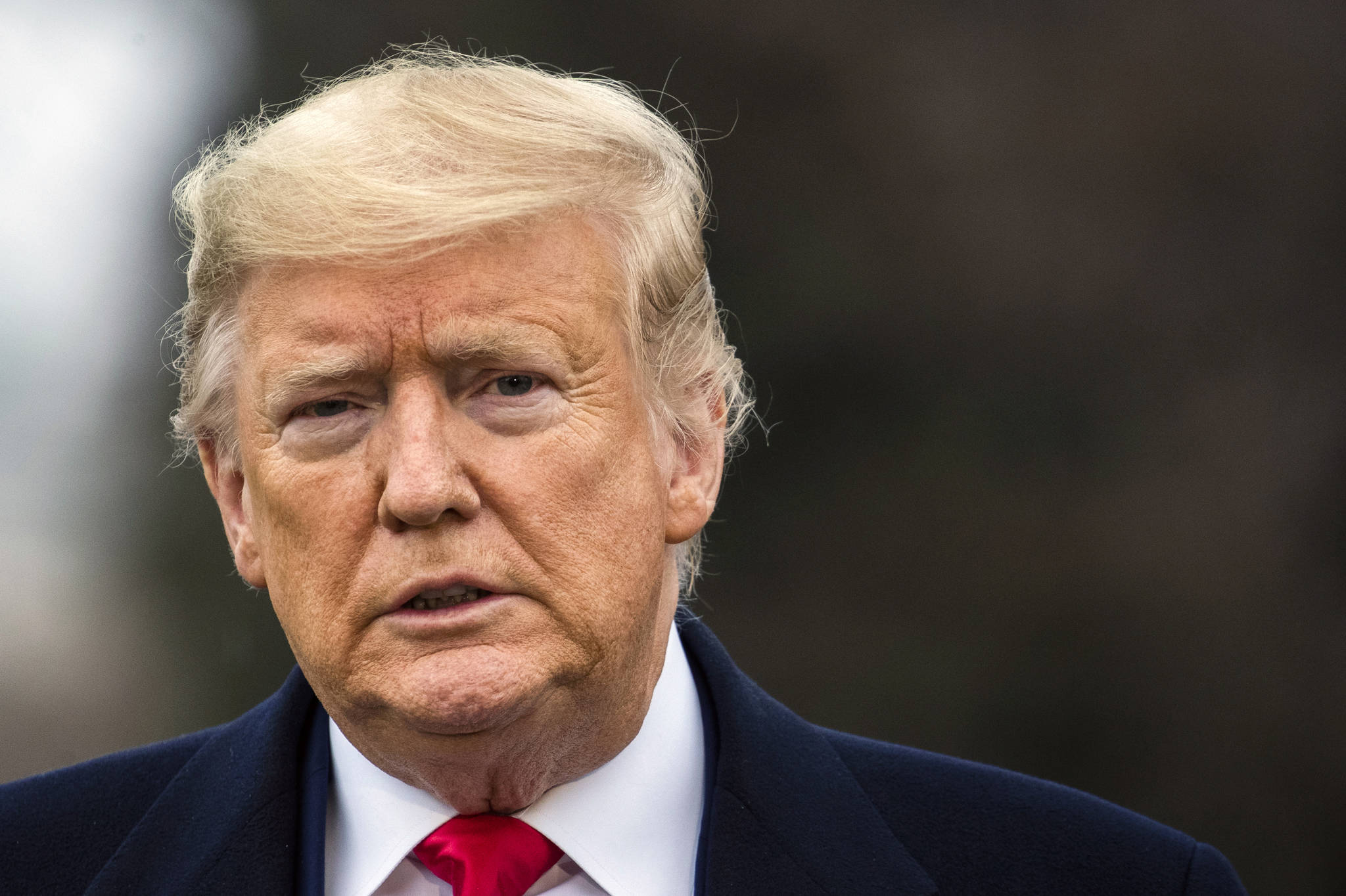After years of threatening to take legal action against the “fake news” media, President Donald Trump is suing the New York Times and the Washington Post. But he’s challenging opinions, not news reporting. Which means there’s no chance he’ll win.
As an opinion writer who often criticizes our governor, I took these lawsuits seriously. But after reading them and the three opinion pieces — one in the Times and two in the Post — and doing further research, I’ve concluded these are “fake” lawsuits.
Both contain complaints that appear judiciable.
Newspapers cannot “knowingly publish false and defamatory statements.” And Trump further alleges the opinions were part of a “systematic pattern of bias” against his re-election campaign “designed to maliciously interfere with and damage its reputation and ultimately cause the organization to fail.”
The offending statements in all three articles are related to foreign interference in the presidential election. One of them, written for the Post by Greg Sargent in June 2019, is that the investigation by special counsel Robert Mueller concluded “Trump and/or his campaign eagerly encouraged, tried to conspire with and happily profited” from Russian meddling during the 2016 election.
[Mental health lecture series closes with frank discussion of suicide]
Trump, however, argues “the Mueller Report concluded there was no conspiracy between the Campaign and the Russian government, and no United States person intentionally coordinated with Russia’s efforts to interfere with the 2016 election.”
Andrew C. McCarthy, a former federal prosecutor and staunch Trump defender, called the first lawsuit filed “frivolous” and disagrees with Trump’s argument. “The president seems to believe that the Mueller investigation’s failure to find an actionable criminal conspiracy between the Trump campaign and Russia means there was no ‘collusion’ of any kind between the two,” he wrote.
That’s not “the equivalent of finding no unsavory collusion whatsoever. The Trump Tower meeting was plainly unsavory.”
That’s the meeting requested by a Russian official who promised to provide the Trump campaign with dirt on his opponent, Hillary Clinton. Donald Trump Jr. immediately responded by writing “if it’s what you say I love it.” That message, and the initial false claim by Trump Jr. that the meeting had nothing to do with the campaign, are part of the evidence chain included in the Mueller report.
So, on one side, we have McCarthy, a very qualified lawyer who supports Trump, and Sargent, an opinion writer who is biased against Trump, both claiming the Mueller report shows Trump was openly receptive to Russian assistance. And Trump references the report to make a completely opposite argument.
“Of course, the president is entitled to his opinion on this subject” McCarthy reminds us. Because in America, “you have the right to draw your own conclusions from reported information, and to express your views — right or wrong.”
Not so in Trump’s world. As explained in the Post lawsuit, his intention is to “publicly establish the truth” and “properly inform the Post’s readers (and the rest of the world) of the true facts.”
But based on the two previous libel suits against established media sources that Trump lost, I don’t believe he expects the court to elevate his interpretation of Mueller’s findings into undisputed facts.
In 1984, Trump sued the Chicago Tribune after their architecture critic called the 150-story building Trump wanted to build “one of the silliest things anyone could inflict on New York or any other city.” It was a matter of opinion, the judge ruled. The case was dismissed.
In 2006, Trump went after journalist Timothy L. O’Brien for including a small section in his 275-page book that stated Trump had inflated his financial worth from $250 million to $5 billion.
The judge ruled that O’Brien’s estimate constituted a reasonably informed opinion and dismissed the case.
Trump appealed. But after losing that too, he contended taking the case to court still helped him “make sure people knew it was false.”
Another way to look at that rationalization is that the absence of the lawsuit would have let O’Brien’s claim stand as an undisputed fact.
And I believe that’s similar to Trump’s strategy now.
He’s sowing seeds of doubt about all news stories and opinions published by the Times and Post. And alongside the campaign promises both candidates are sure to break, the lawsuits are nothing more than a novel way of trying to con America’s voters.
• Rich Moniak is a Juneau resident and retired civil engineer with more than 25 years of experience working in the public sector.
• Columns, My Turns and Letters to the Editor represent the view of the author, not the view of the Juneau Empire.

